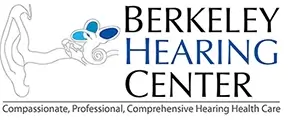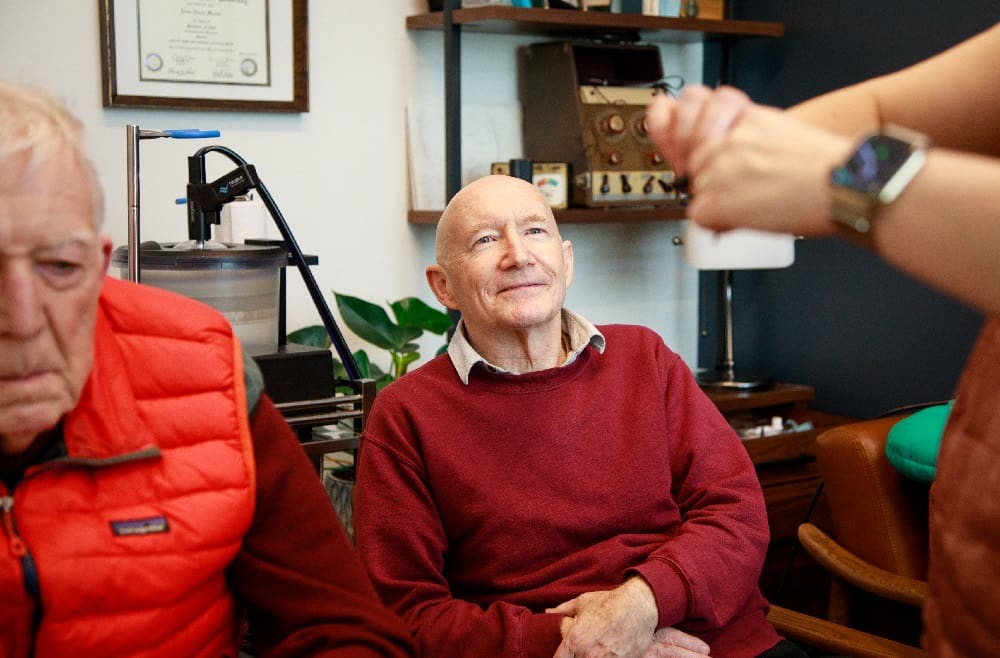2021-04-09
Jonathan Lipschutz Audiologist, M.S., F-AAA, Co-Owner
I’m a firm believer in the axiom, “knowledge is power.” Not in the monied, power, manipulative sense, but on a personal level. We all have beliefs that are derived from our experience, culture, and knowledge.
To continue growing and feeling grounded, it’s important to challenge beliefs with education/learning. Whatever doesn’t stand up to scrutiny isn’t worth believing in, right? So, for better or worse (there’s a lot of ‘less-than-good' things going on about us), I’m a voracious reader of information about the world around me. It helps that I like learning about the fascinating world we live in. And naturally, I’m constantly on the lookout for news or information about the ears and hearing (what does the wind sound like on Mars?!). Recently, I read an article by Julie Jargon of the Wall Street Journal (“Hearing Aids, iPhone Apps and New Tech Mean More Ways to Deal With Hearing Loss—But Same Old Anxiety”) that’s ostensibly about new technology available to help people with mild to moderate hearing loss, particularly through the upcoming implementation of the “Over-the-Counter (OTC) Hearing Aid Act.”
It touches on a number of topics that I’ve written about more in-depth in the past--stigma of hearing loss, OTC hearing aids, and of course, the intersection of hearing aids & technology.
It is a well-written piece relative to technology. But like practically all other media articles about addressing hearing loss, it focuses only on the technological aspects of hearing healthcare. It only tangentially or indirectly nods to the critical importance of the hearing healthcare provider.
Granted, Julie is the “Family & Tech” columnist. And I know that she’s truly trying to correctly inform her readers. But it’s a disservice to them when she leaves out the critical role audiologists play in the best hearing healthcare possible. And as she correctly states in the title (“...Same Old Anxiety.”), this is about hearing loss, a medical issue that can (like any health issue) be emotionally charged and with potentially significant long-term health ramifications. Hearing aids, whether simple OTC devices or sophisticated programmable prosthetics dispensed by an audiologist are only tools to treat hearing loss. As someone who treats people with hearing loss every day, I know how much of a difference the care we provide makes in the lives of our patients. Whether it’s the comprehensive testing & counseling regarding the results, the programming/fitting, and detailed instruction on the use and care of their hearing aids to the ongoing/timely support, our patients routinely testify to how the care we provide is indispensable and critical to their success staying connected with their world. I feel bad when patients or their family say previous providers ‘never told me that’ - perhaps something that was critical to the proper function of their hearing aids, how to ‘stage’ communication situations to take advantage of how their hearing aids work or simply how to clean/care for them, so they consistently help. Just because someone buys a hearing aid doesn’t mean that they’ve received good hearing healthcare (or any hearing healthcare for that matter). In fact, I counsel my patients that what they are really investing in is the best hearing healthcare.
The hearing aids are just a component of that care, albeit an important one. But even, or especially, when it comes to the hearing aids, the difference an experienced, knowledgable and caring provider utilizing best practices makes is profound.
Hearing aids don’t correctly program themselves for how each specific patient subjectively hears! There’s no substitute for the in-person programming and in-situ acoustic verification of hearing aids. There is no substitute for the in-person audiological education, instruction/practice, counseling, and ongoing support that enables patients to get the maximum short & long-term benefits properly fit amplification can provide.
One can buy “cheaper” hearing aids, but what they’re really buying is cheap hearing healthcare. And typically, they get what they pay for. I hear about it all the time from patients who’ve made that mistake and are now under my care. Mostly because they didn’t know there was a difference.
No one ever informed them about the importance the hearing healthcare provider makes. That’s why I take issue with these articles that only talk about the technology when the most important component of the best hearing healthcare is the audiologist.
I know of no other medical field where the tools used by the provider to treat their patients are considered more important than the medical professional themself!
As a dispensing audiologist, ostensibly someone who makes a living ‘selling hearing aids to people, some might think, “Oh, he’s just worried about the advent of ‘hearables’ & OTC hearing aids.” This couldn’t be further from the truth.
In fact, as a dedicated audiologist, anything that raises the awareness of hearing loss and the importance & benefits of early consistent treatment with properly fit amplification is a tremendous accomplishment. As Julie noted in her article, it takes 5-7 years for people with hearing loss to seek help and begin treatment with hearing aids.
Just as alarming, though, approximately ⅔ of people with treatable hearing loss don’t have hearing aids! Bringing down the time of identification-to-treatment and increasing the uptake of that treatment is our ultimate goal. In addition, OTC hearing aids are going to be subject to the same user-related issues professionally dispensed hearing aids are subject to...which we address with our patients every day. Though many folks will be able to effectively use these devices without our assistance, many others will not.
And who better to assist with those issues than the professionals specifically trained to treat hearing loss?!
Lastly, OTC hearing aids will only be designed to treat folks with mild to moderate hearing loss, which accounts for a relatively small portion of the patients we see. But even they wisely choose to consult a professional who can educate and inform them about treatment options and support them going forward if desired. So if OTC gets more people talking about & treating their hearing loss earlier, we are all for it!
With the finish line in sight, please continue to love your neighbors by continuing to wear facemasks (hate them!!!), socially distance, wash/sanitize hands, and get vaccinated as soon as you're eligible. Please also continue supporting your local businesses!
Jonathan Lipschutz Audiologist, M.S., F-AAA, Co-Owner






